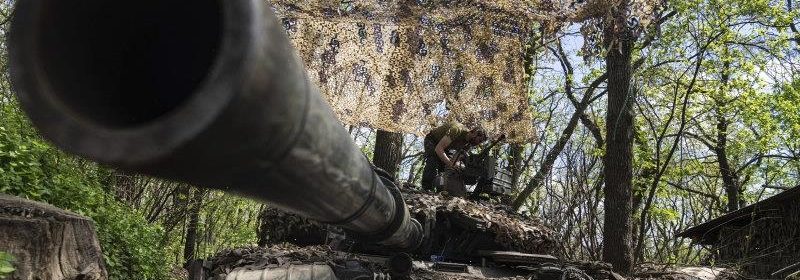Russia reports blasts on its soil, as it cuts off gas to Poland, Bulgaria

Warsaw/Sofia/Kyiv: A Ukrainian official has hinted his country might be involved in a series of fires in border regions of Russia, while Russia has halted gas supplies to Bulgaria and Poland for rejecting its demand for payment in roubles.
On Wednesday (AEST), the governor of the Belgorod region said an ammunition depot was burning after several explosions were heard. Earlier this week, there was a blaze at an oil storage facility in Bryansk.
A truck drives past the Mariupol theatre damaged during fighting in Mariupol in territory under the government of the Donetsk People’s Republic.Credit:AP Photo/Alexei Alexandrov
Ukraine hasn’t officially taken responsibility for those and other incidents, and Russian officials haven’t publicly ascribed them to Ukrainian attacks.
But Ukrainian presidential adviser Mykhailo Podolyak said in a Telegram post that “karma (is) a harsh thing”. He said that Russian regions where the incidents happened “are now also actively studying the concept of ‘demilitarisation.’”
Without directly admitting any Ukrainian involvement, he said that “sooner or later the debts will have to be repaid.”
Russia’s decision to halt gas supplies, denounced by European leaders as “blackmail”, comes as its own economy wilts under sweeping international sanctions and as Western countries ramp up arms shipments to help Ukraine fend off a new Russian assault in the east.
Ukraine reported on Wednesday that Russian troops had made gains in several villages there.
Ukraine’s prosecutor-general said Russian forces had used tear gas and stun grenades to disperse a pro-Ukraine rally in the southern city of Kherson, the first big urban centre seized by Moscow after the February 24 invasion.
Gazprom, Russia’s gas export monopoly, said it had “completely suspended gas supplies” to the Polish and Bulgarian gas companies “due to absence of payments in roubles”, as stipulated in a decree from President Vladimir Putin that aims to soften the impact of sanctions on the Russian economy.
Polish President Andrzej Duda said the move violated “basic legal principles”. Bulgarian Energy Minister Alexander Nikolov said gas was being used as a “political and economic weapon”.
Ukrainian serviceman install a machine gun on the tank during the repair works after fighting against Russian forces in Donetsk region.Credit:AP Photo/Evgeniy Maloletka
Kremlin spokesperson Dmitry Peskov said Russia remained a reliable energy supplier and denied it was engaging in blackmail. He declined to say how many countries had agreed to switch to paying for gas in roubles but other European customers said gas supplies were flowing normally.
European Commission President Ursula von der Leyen called the cut-off “yet another attempt by Russia to use gas as an instrument of blackmail”.
But the commission has also said the EU’s gas buyers can engage with Russia’s payment scheme provided certain conditions are met.
Germany’s main importer, Uniper, said it could pay without violations. Austria and Hungary, among others, have also indicated they will take this route.
However, ambassadors from the EU member states asked the commission for clearer guidance on whether sending euros to Gazprombank would amount to a breach of sanctions.
Poland and Bulgaria are both former Soviet-era satellites of Moscow that have since joined the EU and NATO. Poland has been one of the Kremlin’s most vocal opponents over the war.
Bulgaria has long had warmer relations with Russia, but Prime Minister Kirill Petkov, an anti-graft campaigner who took office last year, has denounced the invasion of Ukraine. He was due in Kyiv on Wednesday to meet President Volodymyr Zelensky.
Bulgaria and Poland are the only two European countries with Gazprom contracts due to expire at the end of this year, which meant their search for alternative supplies was well under way.
Since the Russian invasion force was driven back at the outskirts of Kyiv last month, Moscow has refocused its operation on eastern Ukraine, starting a new offensive from several directions to fully capture two provinces known as the Donbas.
“Russia has already gathered strength for a large-scale offensive in eastern Ukraine … in the coming days we will need all our resilience and extraordinary unity,” Ukrainian Defence Minister Oleksiy Reznikov said on his Facebook page.
An aide to the mayor of the ruined port city of Mariupol said Russian forces had renewed their attacks on the Azovstal steel plant, where fighters and some civilians remain holed up.
No agreement was reached on evacuating civilians from Mariupol on Wednesday.
Concern has increased in recent days over the prospect of the conflict widening to neighbouring Moldova, where pro-Russian separatists have blamed Ukraine for reported attacks this week in their region, occupied since the 1990s by Russian troops.
Authorities in Transnistria said there had been firing across the border from Ukraine on Wednesday.
Ukraine has accused Russia of trying to mastermind ‘false flag’ attacks in the region, and Moldova’s pro-Western government accuses the separatists of trying to stir conflict.
The invasion of Ukraine has left thousands dead or injured, reduced towns and cities to rubble, and forced more than 5 million people to flee abroad. Moscow calls it a “special operation” to disarm Ukraine; Kyiv and its allies call the war an unprovoked act of aggression.
Reuters
Get a note directly from our foreign correspondents on what’s making headlines around the world. Sign up for the weekly What in the World newsletter here.
Most Viewed in World
From our partners
Source: Read Full Article


